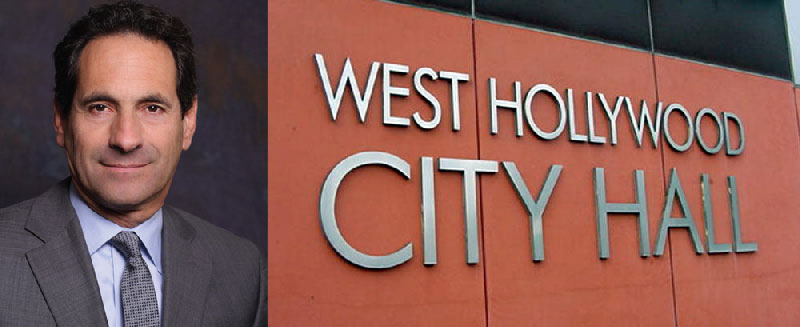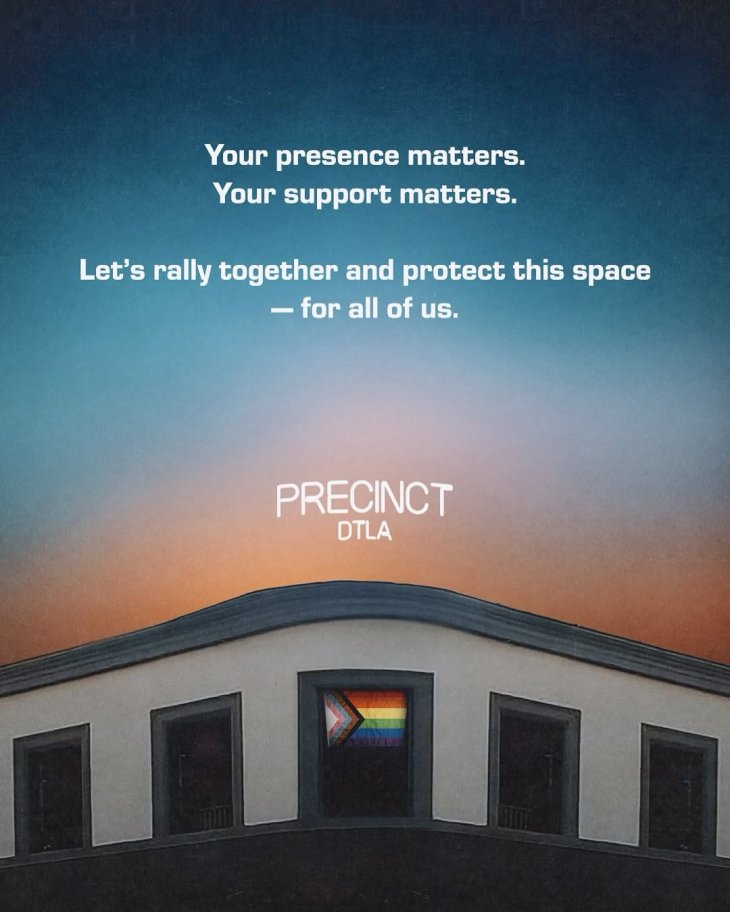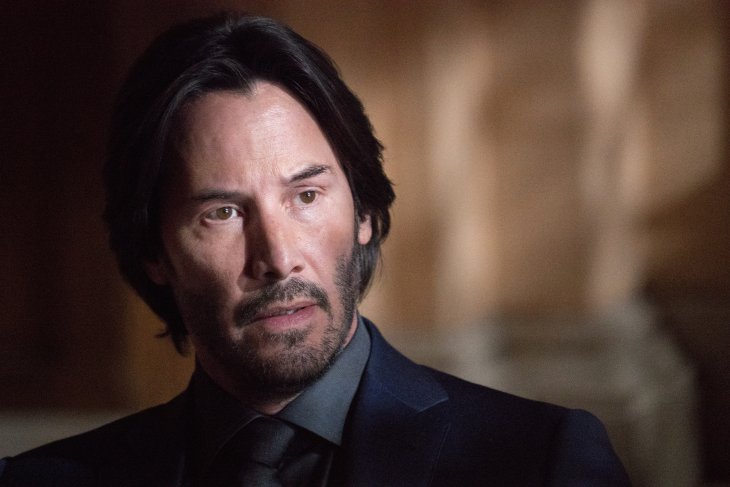
BY KAREN OCAMB | Long before Ian Owens was suspended from his job as deputy to West Hollywood City Councilmember John Duran in January 2015 amid allegations he bugged the office of John Heilman’s council deputy Fran Solomon, residents agitated for a thorough public airing of the perceived shenanigans behind the council deputy system. After the city recently settled Owen’s lawsuit against the city and Duran alleging sexual harassment and wrongful punishment for $500,000, the clamor for transparency grew even louder, especially since the settlement included no confession of wrongdoing.
“This agreement shall not in any way be construed as an admission by defendants or Owens of the truth of any allegations, or an admission of any unlawful acts or other liability whatsoever,” the Los Angeles Times quotes the settlement as saying.
The Times also quotes WeHo City Attorney Mike Jenkins as saying that an independent investigation showed Duran “did not engage in sexual harassment.”
So why did the city settle and why can’t the whole unsavory affair be aired and disclosed in public for the city’s residents to ask questions? At the Monday, April 4 City Council meeting, Jenkins responded to the growing frustration.
First, Jenkins said, the decision to settle and to pay Owens was a “calculated business decision” made by the city’s insurers, not the city or Duran. And because he was named in the lawsuit, Duran was recused from any of the discussions or decisions.
Secondly, Owens’ attorneys have said that comments about the case made at the council meetings could lead to yet another lawsuit. Additionally, any public discussion of a lawsuit just filed by Councilmember John D’Amico’s former deputy, Michelle Rex, could compromise the city’s defense.
Third, such constraints, while legally necessary, are frustrating for councilmembers, as well as understandably upset residents.
“When the City Council decided to support settlement of the Owens case, the Council was resolved to schedule a public discussion of some of the matters raised in the lawsuit, matters that the Council felt were important to air in public. That discussion has yet to be scheduled, principally because of the potential complications that could arise from such a discussion. By way of example, the City’s insurance pool has cautioned the City to avoid public comments that could trigger additional potential litigation at the risk of losing its insurance coverage. Mr. Owens’ lawyer has threatened the City with new litigation if statements are made that his client regards as actionable,” Jenkins explained. “The City must navigate through this very complicated minefield. And, while this frustrates the public, it is also very frustrating to the Council, which is being told that conversations it believes are important to conduct in the open must be postponed until we find a way to do it safely and protectively of the rights of everyone involved.
Here’s a transcript of Mike Jenkins’ full remarks:
“I would like to take a moment and clarify for the public some misinformation that has been communicated in these chambers about the recent settlement of the lawsuit brought against the City by former Council deputy Ian Owns.
As you know, city business is ordinarily conducted in public, in these chambers. In certain exceptional circumstances, the city council may meet behind closed doors where the public’s interests would be compromised by an open discussion. One of those circumstances is the discussion of litigation, where an open discussion would hurt the City and its residents by alerting adversaries to the City’s strategies. This constraint makes it more difficult to communicate with the public about litigation matters.
The extent to which the details of litigation can be shared varies depending on the type of litigation. Obviously, when someone challenges a City law or a decision by the Council to approve a project, we have a lot of latitude to share the details of the case with the public. A case brought by a City employee involving personnel matters is very different – employees enjoy statutory and Constitutional rights of privacy that prevent the City from disclosing certain information, both during and after the resolution of the case. That circumstance frustrates the ability of the Council to do what it wants to do and ordinarily does – share and explain its decision making with the public. What elected officials like least is when their lawyers tell them not to talk.
The City is not alone in the defense of litigation brought against the City. Like most individuals, the City has insurance and some lawsuits come within the scope of the City’s insurance coverage, meaning that once the City’s deductible – called a “self-insured retention” — is satisfied, the insurance pool pays for the cost of defense and ultimately pays for any monetary judgment against the City; hence, the insurance pool plays a decision making role when it comes to defense strategies and the City, in turn, owes the insurer a duty of cooperation.
Former Council deputy Ian Owens named both the City and Councilmember Duran as defendants in his lawsuit, alleging that Councilmember Duran engaged in behavior outside the scope of his duties. Consequently, Councilmember Duran was recused from participation in the Council’s deliberations regarding the case – meaning that Councilmember Duran was excluded from closed sessions and played no role in the Council’s decision making regarding the case.
Lawsuits always have complications and it is almost never possible to predict with certainty the outcome of a lawsuit. As a case proceeds towards trial, many factors contribute to a party’s strategy – how much will it cost to take the case to trial? If we lose on just one disputed point and win on all others, will we nonetheless be responsible for paying our adversaries’ legal fees? Will the City be distracted from its important work by devoting substantial time towards defense of the lawsuit? Does the lawsuit present a principle worth fighting for? These are just a few.
When an insurance carrier determines that the balancing of these factors favor an early settlement, the City has a duty to cooperate. If the City fails to cooperate, its coverage could be jeopardized. In this instance, after weighing all the relevant factors, the City’s carrier determined that an early settlement was the most desirable outcome, exclusively from a financial point of view. The four members of the Council participating in deliberations about this case unanimously concurred. Councilmember Duran was not involved in that decision. These are not easy decisions and, our inability to address the details of litigation matters publicly is frustrating to us and to the public.
When the City Council decided to support settlement of the Owens case, the Council was resolved to schedule a public discussion of some of the matters raised in the lawsuit, matters that the Council felt were important to air in public. That discussion has yet to be scheduled, principally because of the potential complications that could arise from such a discussion. By way of example, the City’s insurance pool has cautioned the City to avoid public comments that could trigger additional potential litigation at the risk of losing its insurance coverage. Mr. Owens’ lawyer has threatened the City with new litigation if statements are made that his client regards as actionable. Just last week another lawsuit has been filed against the City arising out of some of the same factual circumstances – this one by former Council deputy Michelle Rex – the defense of which could be potentially compromised by a public discussion of the Owens case. The City must navigate through this very complicated minefield. And, while this frustrates the public, it is also very frustrating to the Council, which is being told that conversations it believes are important to conduct in the open must be postponed until we find a way to do it safely and protectively of the rights of everyone involved.
I do want to observe that, as required by law, the City has a sexual harassment policy in place; makes that policy available to all employees; conducts training for employees; encourages reporting of harassment and investigates all such reports timely and thoroughly; retains the services of an outside investigative firm as a City “ombudsperson” who employees may contact directly to report harassment or any other wrongdoing to initiate an independent investigation, if they are reluctant to file a report internally. Every case filed with the City is taken seriously. Every city employee has a duty to report harassment against themselves or harassment that they witness. Despite the policies in place, the City is in the process of conducting an audit of our human resources policies and practices to ensure our employees are protected from harassment, discrimination and retaliation.”























